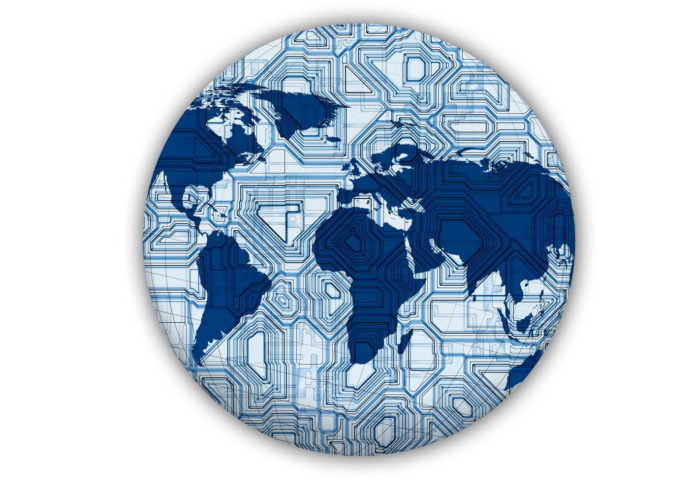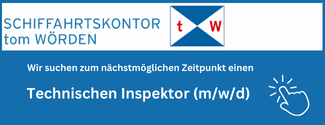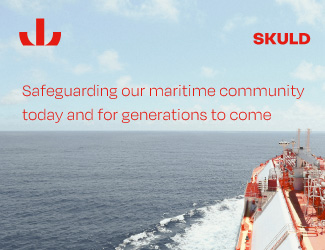
The marine equipment industry in Germany made considerable efforts to respond to weak global demand and growing competition. Companies will definitely benefit from developing new markets, product innovations and digitalization and and networking
This German high-tech sector with its more th[ds_preview]an 65,000 employees has still not seen the end of the decline in incoming orders, but there is a ray of hope on the horizon. Branch experts can say this because of the flexibility of marine and offshore equipment suppliers, as well as the good economic data from the German machinery and plant engineering industry that became apparent this year. However, this certainly does not apply to the maritime area on average. The branch predicts that there will be no major improvement for the sector as a whole in the near future.
However, individual maritime markets and segments are definitely optimistic: for ferries there is high demand in the short and medium term, and the same applies for electrical engineering systems and components, which with the ongoing process of automation are absolutely vital for the smooth, efficient operation of ships and plants.
It is to be hoped that in the medium term the gratifying economic developments in the mechanical engineering industry will also have a positive effect on the entire maritime sector.
Meanwhile the shipping market is continuing to consolidate, new business models are changing the supply situation and established models are losing significance. The growing digital possibilities have to be intelligently used in the interaction between operators, shipyards, equipment suppliers and beyond. Learning from one another across sectors is thus the motto of the equipment and system suppliers. Their solutions are in demand in shipbuilding as well as associated areas in the maritime environment such as logistics, port technology and energy.
There is currently a great deal of discussion about »Industry 4.0«, the German acronym for the »Internet of Things«, but implementing and profitably applying networked production and services involve considerable hurdles for many companies. This process is proceeding fast and continuously in the maritime sector. VDMA member companies already supply from the data generated by a whole variety of sensors on board vital information for the entire shipping sector. With such services the companies are developing new business models.
Autonomous short-sea shipping as well as autonomous unloading of cargo ships is already beyond the research phase in Europe and now undergoing practical testing, thanks to integrated systems from German companies. Branch experts are warning that companies that are not alive to this development will be among the losers of digitalization. In the production of maritime technologies, competitive advantages are also realised via intelligent automation solutions. New sensor technology, data evaluation algorithms and interface definitions (OPC UA) have to be integrated.
A recent activity of VDMA is supporting exactly these developments: A group of leading automation technology suppliers initiated a VDMA standardization project for data exchange formats on board, following successful implementations of such standards in other industry branches like the process industry. Important customers and following steps in the supply chain, like system suppliers and leading shipyards, are actively integrated in the project to gain maximum acceptance of the new proposals in the market.
The digital solutions contribute significantly to the achievement of economic and environment-friendly goals in shipping. This involves the use of electric hybrid propulsion systems, as already deployed on ferries, offshore vessels and other special ships, to reduce environmentally harmful emissions. And in overseas transport the set climate objectives can be realised with the intelligent use of alternative fuels, which can successively replace fossil fuels on ships. »E-fuels« will play a particularly important role in this respect. Makers of large engines and the VDMA are thus advocating a maritime energy transition. It is important here to think beyond the engine in itself and consider the overall propulsion system.
Considering the weak newbuilding market, after sales services are gaining growing importance for the industry within their day to day business. According to a survey by Fraunhofer CML, a leading research partner of VDMA, nearly all shipping companies anticipate a broadly based digitalization of their maintenance processes in the next few years and expect proposals for solutions from industry. An initial VDMA study found that precisely particularly successful companies in after-sales business focus on developments from the area of Industry 4.0, namely remote services and condition based maintenance, as well as management of services via management information systems. The second study VDMA commissioned, which is currently running, is concerned with digital service. From this the marine equipment industry expects specific ideas for the sector.
VDMA – Marine Equipment and Systems is part of the German Machinery Industry Association (VDMA), the largest industrial association in Europe. With over 240 member firms, VDMA – Marine Equipment and Systems represents the interests of the highly export-oriented suppliers of marine equipment and systems for the global shipping, shipbuilding and offshore oil and gas markets.
Hauke Schlegel
















